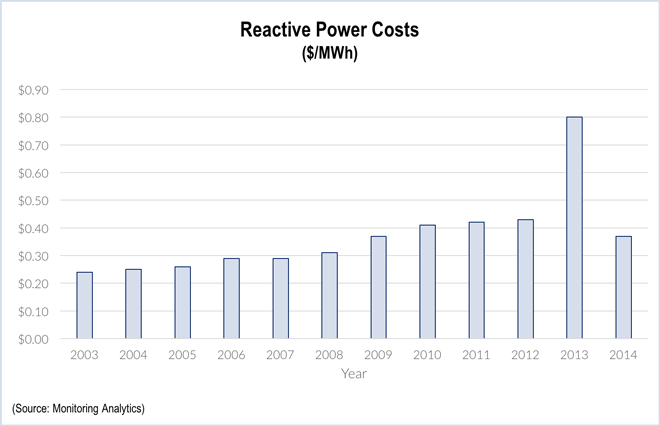By Michael Brooks
PJM generating companies that deactivate or transfer ownership of units in their fleet will have to revise their reactive power rates or explain why they have decided not to under Tariff revisions approved by the Federal Energy Regulatory Commission last week (ER15-696).

PJM submitted the revisions to Schedule 2 of its Tariff in December after FERC issued an Order to Show Cause in which the commission said it was concerned that the RTO’s Tariff lacked explicit provisions preventing generators that have been retired or sold from receiving reactive power payments. (See Impatient FERC Orders Immediate PJM Action on Reactive Power Payments to Retired Plants.)
In its filing, PJM argued that it lacked the power to force a generator to terminate or revise its rate schedule or to stop paying it for reactive power; doing so would be a violation of companies’ rights under section 205 of the Federal Power Act, it said.
PJM said its rule change reduces the probability that a retired generator would continue receiving reactive power payments while avoiding putting the RTO in a ratemaking role.
Some stakeholders disagreed. Public Service Enterprise Group argued that the revisions were equal to forcing generators to submit a section 205 filing, something neither PJM nor FERC can do.
FERC agreed with PJM that its proposal preserves the companies’ section 205 filing rights. “We disagree with [PSEG] that the informational filing requirement is tantamount to requiring a section 205 filing. Court and commission precedent recognize that the commission retains the ability to require informational filings without exceeding its authority under section 205.”
FERC ordered the RTO to further revise Schedule 2 of the Tariff to specify that the informational filings must include each resource’s fuel source, wattage and MVAR capability.



